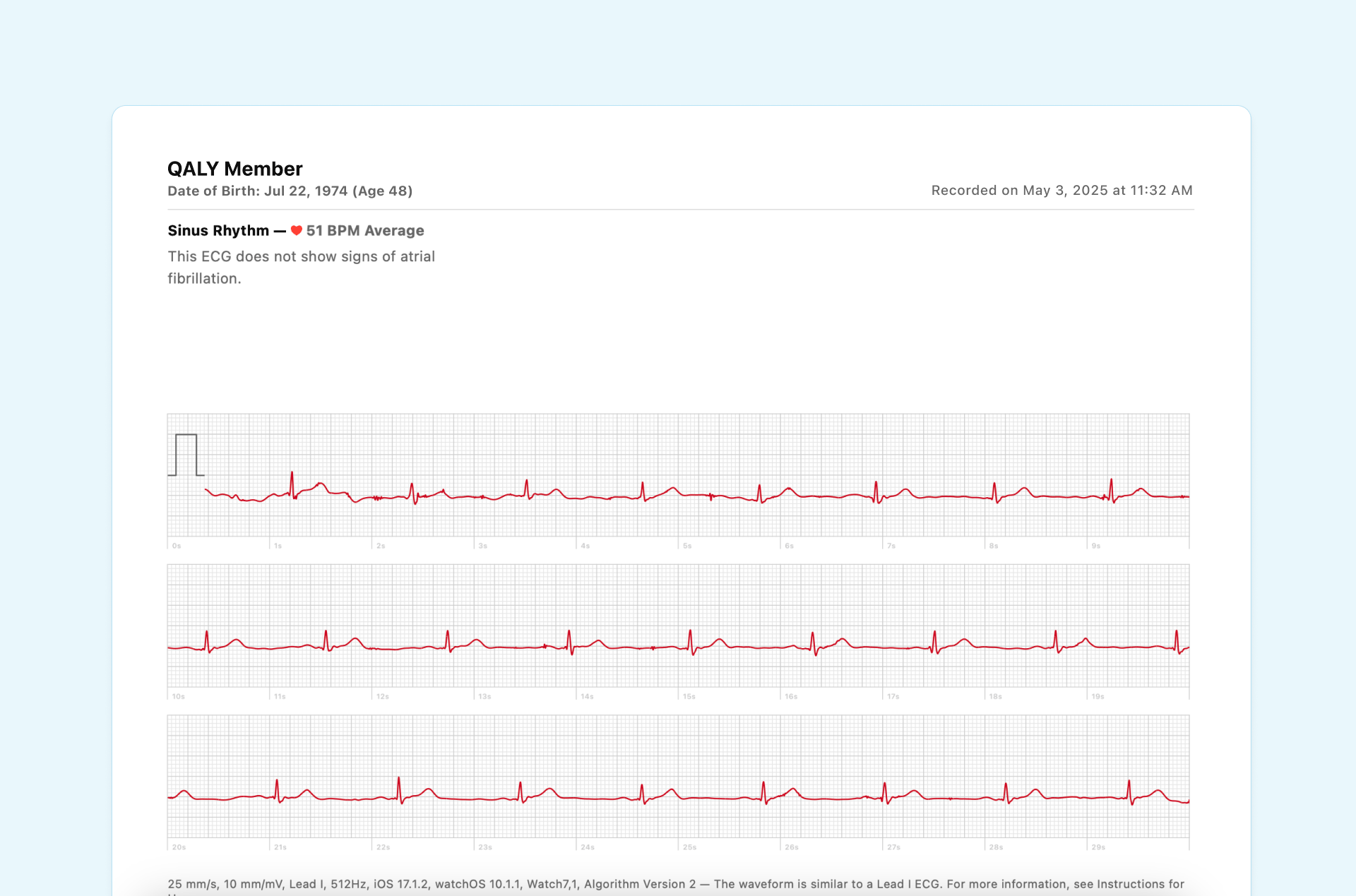Key Takeaways
Hello, Heart Hero. Starting a new medication can feel a little daunting, and if you've just been prescribed metoprolol, it's completely normal to have questions and maybe a few worries about potential side effects.
We're here to cut through the confusion and give you the clear, straightforward information you need to feel in control of your health.
Navigating Your Journey with Metoprolol

You've been prescribed this beta-blocker to help your heart, but truly understanding what to expect is the first step toward feeling confident in your treatment plan. Maybe you're a bit skeptical of the standard, one-size-fits-all explanations you get from healthcare providers. We get it. Many people feel the healthcare system doesn't always listen, which is why seeking out clear information on your own is so important.
Our goal is to walk you through everything in a way that actually makes sense. We'll cover what metoprolol does, break down the difference between common and serious metoprolol beta-blocker side effects, and give you practical tools to monitor your health right from home.
What to Expect From This Guide
We believe knowledge is empowering. By the end of this guide, you'll be able to:
- Understand why side effects like fatigue and dizziness happen.
- Learn how metoprolol might affect your ECG readings.
- Know exactly what to watch for and when it’s time to call your doctor.
Think of this as your personal roadmap to navigating treatment. Whether you're managing atrial fibrillation or another heart condition, getting to know your medication is key. For a deeper dive into other treatments, you might find our resources on different types of heart medicine for AFib helpful as well.
Let's get you the insights you need to manage your health with confidence and peace of mind.
How Metoprolol Works and Why Side Effects Occur
To get a real handle on why metoprolol can cause side effects, we first need to understand what it’s actually doing in your body.
Imagine your heart is a car engine that's stuck in high gear, revving too fast, working too hard, and causing a lot of unnecessary strain. In this scenario, adrenaline is the gas pedal, constantly pushing the engine to go faster.
Metoprolol, which belongs to a class of drugs called beta-blockers, acts like a gentle, steady foot on the brake. It works by blocking the effects of adrenaline at specific connection points called beta receptors. This simple action slows your heart rate down and eases your blood pressure. The end result? Your heart doesn't have to work nearly as hard, which is a massive win for your long-term health.
The Source of Side Effects
So, if it’s so helpful for the heart, why the side effects? It's pretty straightforward: metoprolol's braking action isn't just limited to your heart. Those same beta receptors are found all over your body, in your blood vessels, your lungs, and even in your brain.
Because metoprolol pumps the brakes system-wide, you might feel its effects in places beyond your heart. This is exactly where the common metoprolol side effects come from.
- Fatigue: Your entire body is adjusting to a new, slower pace. It’s completely normal to feel tired, especially during the first few weeks as your system gets used to it.
- Dizziness: Lowering your blood pressure is the goal, but sometimes this can make you feel a bit lightheaded, particularly if you stand up too quickly.
- Cold Hands and Feet: As metoprolol relaxes blood vessels throughout your body, you might notice a change in circulation to your fingers and toes.
Just knowing this connection can make the experience a lot less worrying. It's simply your body recalibrating to a healthier, calmer rhythm.
Metoprolol's Widespread Use
Metoprolol is one of the most trusted and prescribed beta-blockers out there, which is a big reason we know so much about its effects.
As of 2024, the two main forms of metoprolol, succinate and tartrate, made up over 53% of all beta-blocker prescriptions. This tells you how important it is for managing heart conditions. It also means your doctor is very familiar with helping patients manage its side effects. For example, clinical observations show that issues like low blood pressure and reduced exercise tolerance might affect about 10-20% of patients, but these often get better as the body adjusts. You can see more data on beta-blocker prescription patterns on DefinitiveHC.com.
The side effects you feel are often a direct result of the medication doing its job effectively. They occur because the "calm down" signal sent to your heart also reaches other parts of your body that use the same communication pathway.
Common Metoprolol Side Effects and How to Manage Them

Starting metoprolol is a great step for your heart health, but it's totally normal to feel a little uncertain about what to expect. Your body needs a little time to get used to its new, slower rhythm, so noticing some changes along the way is very common. Knowing what's coming can make all the difference, helping you feel prepared and confident.
Let's walk through the most frequent metoprolol beta-blocker side effects. These are all a normal part of the adjustment period, and you are definitely not the only one to experience them.
Feeling Tired and Dizzy
One of the first things people often notice is feeling more tired than usual. This makes perfect sense. Metoprolol is designed to slow things down to give your heart a much-needed break. Think of it like your body shifting gears from a full-out sprint to a comfortable, steady jog.
Along with that fatigue, you might feel a bit dizzy or lightheaded, especially when you stand up too quickly. This is a direct result of the medication lowering your blood pressure. The simple fix? Give yourself an extra moment when you change positions. Move slowly and let your body catch up.
The most common metoprolol side effects are often signs that the medication is working as intended. The fatigue and dizziness you might feel are typically temporary as your body adapts to a lower heart rate and blood pressure.
Changes in Circulation and Digestion
Ever notice your hands and feet feeling a bit colder than normal? That's another common effect. As metoprolol relaxes your blood vessels, it can slightly alter the blood flow to your extremities. Keeping a pair of cozy socks or gloves handy can help you stay comfortable.
Some people also run into mild digestive issues when they first start the medication. This might show up as:
- Nausea: A queasy feeling that usually gets better with time.
- Diarrhea: Loose stools that are generally temporary.
- Stomach aches: Some mild cramping or general discomfort.
Taking your dose with a meal can often help settle your stomach and even improve how your body absorbs the medication. If these issues don't fade, it's worth a chat with your doctor. You can also find more tips in our broader guide on managing side effects of blood pressure medications.
Navigating Exercise and Mood
You might find that your usual workout feels a bit tougher at first. That's because metoprolol limits how high your heart rate can climb, which changes how your body responds to exercise. It’s important to listen to your body and ease back into your routine gradually.
While metoprolol is generally well-tolerated, its main job of blocking beta receptors can sometimes lead to decreased exercise tolerance or feelings of anxiety. If you find yourself struggling with anxiety, exploring ways to reduce anxiety without medication can be a helpful, supportive step.
It’s important to remember that while most side effects are mild, rare but serious events like a severe allergic reaction or heart block need immediate medical attention. To learn more about how metoprolol works, you can read more about its clinical profile and side effects on NCBI.
Serious Side Effects That Require Medical Attention
We've talked about the common, mild side effects that can come with starting metoprolol. While those are often just signs your body is adjusting, it's also incredibly important to know which symptoms are more serious. This isn't about causing alarm. It's about empowering you to be a confident and proactive partner in your own health. Knowing the warning signs allows you to act quickly and calmly if a problem ever arises.
The good news is that most people will never experience the serious side effects of metoprolol. Still, being able to recognize them is key to your safety. If you notice any of the following symptoms, it's a signal to contact your doctor or seek medical attention right away. Trust your instincts. You know your body best.
These symptoms are your body’s way of saying that the medication's effects might be too strong or that something else needs a closer look. Never hesitate to reach out for help.
Fainting, Extreme Dizziness, or a Very Slow Heartbeat
While mild dizziness can be a common adjustment, a much more serious warning sign is dizziness so intense that you feel like you're about to faint. Actually fainting is a clear signal to get medical help immediately. This often happens if the medication slows your heart rate down too much, a condition known as bradycardia.
A very slow heartbeat can prevent your brain and other organs from getting the oxygen-rich blood they need to function properly. You can learn more in our detailed guide explaining what causes bradycardia.
Signs of Worsening Heart Failure
Metoprolol is often a go-to medication to help manage heart failure, but in rare cases, it can unintentionally make symptoms worse. Be on the lookout for sudden or new signs of fluid retention, which can indicate that your heart isn't pumping as effectively as it should.
Pay close attention to these specific signs:
- Sudden weight gain that you can't explain, like a few pounds in just a day or two.
- New or worsening swelling in your legs, ankles, or feet.
- Significant trouble breathing or wheezing, especially when you're lying down.
These symptoms require a prompt call to your doctor to make sure your treatment plan is still the right one for you.
Severe Breathing Problems or Allergic Reactions
Although metoprolol is designed to be "cardioselective," meaning it primarily targets the heart, it can sometimes affect the airways. If you experience significant shortness of breath, wheezing, or chest tightness, contact your doctor.
A severe allergic reaction to any medication is a medical emergency. The signs are usually very clear and come on quickly after taking a dose.
Call for immediate medical help if you experience signs of an allergic reaction, such as hives, difficulty breathing, or swelling of your face, lips, tongue, or throat. These are signs of anaphylaxis, which can be life-threatening.
While metoprolol offers incredible benefits for cardiovascular health, a large body of clinical research highlights that dosing must be carefully managed to avoid serious issues. Overdose cases can lead to severe outcomes like profound bradycardia, very low blood pressure, and cardiac failure, showing why recognizing these warning signs is so critical. You can learn more about metoprolol's therapeutic benefits and risks on DrugBank.
Understanding How Metoprolol Affects Your ECG
If you use a wearable ECG device like a smartwatch to keep an eye on your heart, you've probably wondered how metoprolol changes your readings. Understanding these changes can help you feel more confident about what you're seeing and have more productive conversations with your doctor. It's empowering to know the difference between an expected medication effect and a potential concern.
The most noticeable and intended effect is a slower heart rate, which is a condition called bradycardia. This is exactly what the medication is supposed to do. A normal resting pulse is typically between 60 and 100 beats per minute, but on metoprolol, it's common for it to fall below 60. This is usually not a cause for alarm unless it's accompanied by symptoms like severe dizziness or fainting.

Looking Deeper Into Your ECG Intervals
Beyond just your heart rate, metoprolol can influence the timing of your heart's electrical signals. One specific measurement you might see change is the PR interval.
Think of the PR interval as the time it takes for an electrical signal to travel from your heart's upper chambers (the atria) to its lower chambers (the ventricles). Metoprolol can sometimes lengthen this travel time, causing a longer PR interval on your ECG. This is a common effect of beta-blockers.
Your ECG provides a window into how metoprolol is working. A slower heart rate and a slightly longer PR interval are often expected findings, reflecting the medication's intended action of easing the workload on your heart.
In very rare instances, this slowing effect can become too pronounced, leading to a condition called AV block. Imagine it as a communication delay between the heart's upper and lower chambers. While uncommon, it's one of the more serious metoprolol beta-blocker side effects that your doctor monitors for. Learning more about how beta-blockers affect your heart and ECG can provide even more clarity.
The key takeaway is to assess the severity of your symptoms and seek medical advice promptly if they feel severe or concerning. Using tools like the Qaly app can help you track your ECG intervals and heart rate trends over time, giving you and your doctor valuable data to ensure your treatment is both safe and effective. This knowledge empowers you to be an active participant in your heart health journey.
Practical Tips for Taking Metoprolol Safely
Taking metoprolol isn't just about swallowing a pill. It's about building a smart, consistent routine that keeps you safe and helps the medication do its job. A few practical adjustments can make a world of difference in how you feel and how well your heart is protected. Think of these tips as your guide to feeling in control of your health journey.
The golden rule, the one thing you absolutely must remember, is to never stop taking metoprolol suddenly. Your body adapts to its presence, and pulling it away without warning can trigger a rebound effect, sending your heart rate and blood pressure skyrocketing. If you and your doctor decide it’s time to stop, they’ll walk you through a gradual tapering process to let your body adjust safely.
Creating a Consistent Routine
When it comes to metoprolol, consistency is king. Taking your dose at the same time every day keeps a stable level of the drug in your system, which can head off side effects like dizziness before they start. Many people find it easiest to pair their pill with a daily meal, like breakfast or dinner.
If the medication gives you an upset stomach, try taking it with food. A small meal can act as a buffer and, for certain types of metoprolol, can actually help your body absorb the drug more effectively. Sticking to your prescribed schedule is the cornerstone of managing your condition well; you can find more tips to improve medication compliance and get better results.
Think of your daily dose as a promise to your heart. Creating a simple, repeatable routine helps you keep that promise without having to think too much about it. It’s a small action with a big impact on your well-being.
What to Avoid While Taking Metoprolol
Part of managing metoprolol beta-blocker side effects is being mindful of what else you’re putting into your body. Some everyday items can interfere with the medication or work against your goal of lowering your blood pressure.
Here are a few things to keep on your radar:
- Alcohol: Booze can intensify metoprolol's blood pressure-lowering effects, which sounds good but can actually leave you feeling dizzy and lightheaded. It's wise to limit alcohol, especially when you're just starting the medication.
- Excess Caffeine: While a morning cup of coffee is usually fine, large amounts of caffeine can counteract what metoprolol is trying to do by nudging your heart rate and blood pressure up.
- High-Sodium Foods: Salty foods make your body retain water, which can raise your blood pressure and force your medication to work overtime. Easing up on processed meals, canned soups, and takeout can give your treatment a helping hand.
Finally, keep the lines of communication with your doctor wide open. Make sure they know about every other prescription, supplement, or herbal remedy you’re taking, some combinations can cause unexpected interactions. If you’re monitoring your ECG at home, your readings and any notes on how you’re feeling are gold. This information helps your doctor fine-tune your treatment plan so it's working perfectly for you.
Frequently Asked Questions About Metoprolol
Starting a new heart medication can bring up a lot of questions. We get it. You want clear, straightforward answers that put your mind at ease. Here are a few of the most common things people ask about metoprolol.
How Long Do Metoprolol Side Effects Last?
This is a big one, and thankfully, the news is mostly good: many of the initial side effects are temporary.
When you first start taking metoprolol or your doctor adjusts the dosage, it's pretty common to feel tired, a bit dizzy, or just generally "off." For most people, this feeling fades away within a few weeks as their body adjusts to the medication. The good stuff, like a slower, more stable heart rate, will stick around.
But if the metoprolol beta-blocker side effects are really bothering you or don't seem to be getting better, it’s definitely time to talk to your doctor. They can figure out if a small dose change or even a different medication might work better for you.
Can Metoprolol Cause Anxiety or Affect My Mood?
Yes, it's possible for metoprolol to have an impact on your mood. While physical side effects like fatigue are talked about more often, some people do notice a shift in their mental well-being.
These changes can sometimes show up as:
- New or worsening feelings of depression.
- An increase in anxiety or nervousness.
- Strange or vivid dreams, or difficulty sleeping.
Your mental health is just as important as your physical health. If you notice any of these mood changes after starting metoprolol, please don't hesitate to bring it up with your healthcare provider. Your feelings are valid, and there are often other treatment options that won't affect you in the same way.
Is It Safe to Drink Alcohol While Taking Metoprolol?
It’s generally a good idea to limit or avoid alcohol while taking metoprolol. Alcohol can amplify the drug's effect on lowering blood pressure. When you combine the two, you significantly increase the risk of feeling dizzy, lightheaded, or even fainting, which could lead to falls and injuries.
The combination of metoprolol and alcohol can make you feel much drowsier and less coordinated than you normally would. It's best to be cautious, especially when you first start the medication and are still learning how it affects your body.
The safest bet is to have an open and honest conversation with your doctor about your alcohol use. They can give you personalized advice based on your health, helping you make the smartest choices for your well-being.
Qaly connects you with certified technicians who analyze your wearable ECGs in minutes, giving you clear insights into your heart's rhythm and how it responds to medications like metoprolol.










.png)
.png)